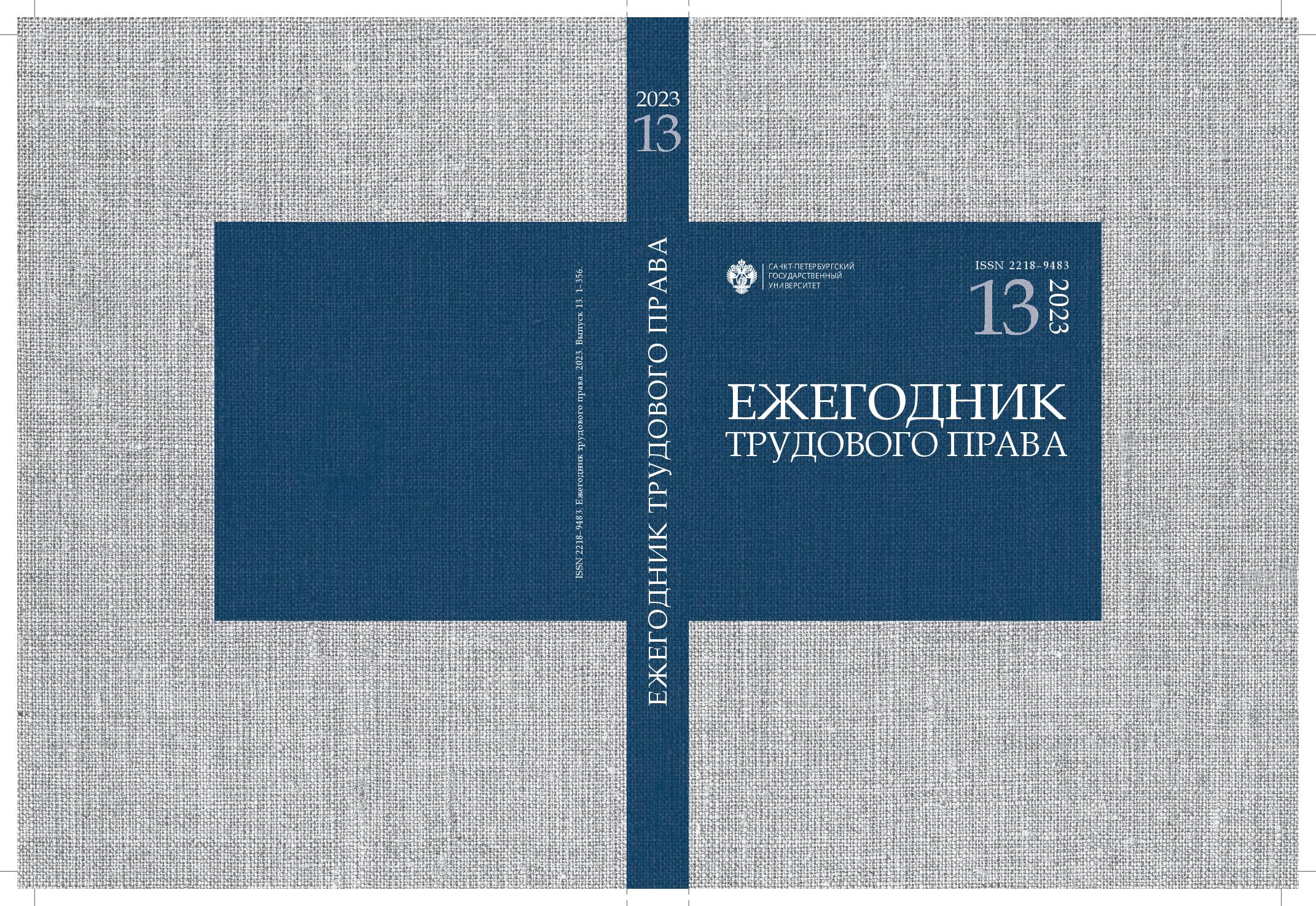Community, Authority, Power: Three times epistemic, but what fits the International Labour Organisation?
DOI:
https://doi.org/10.21638/spbu32.2023.120Аннотация
The International Labour Organization (ILO) is a well-known standard setting organization in the world of work. With its standards the ILO has created an epistemic community for labour law and social security law. Central to this paper though is the question whether the ILO is also an epistemic authority or even an epistemic power. To assess this, the main activities of the ILO are described in this paper. The descriptions are made against the background of the idea of discursive diffusion, which could be typified as governance technique to influence the policies or behaviour of the members of an epistemic community. In the conclusion it is argued that the ILO can definitely be qualified as an epistemic authority, and even holds some traces of epistemic power. However, most of the activities that could make up for the ILO’s epistemic power are executed in the ILO’s field offices. We know not enough about the modus operandi in those field offices, therefore further, preferably qualitative empirical research would be needed.
Ключевые слова:
ILO, epistemic community, epistemic authority, epistemic power, labour standards, discursive diffusion, universality
Скачивания
Библиографические ссылки
References
Bair, Jennifer. 2017. “Contextualising compliance: hybrid governance in global value chains” New Political Economy, 22, no2: 169-185
Clerc, J.M. 1982. "Training as an Instrument of a Strategy for the Improvement of Working Conditions and Environment," International Labour Review 121, no. 4: 565-576
Ghebali, Victor-Yves. 1989. The International Labour Organization. A Case Study on the Evolution of U.N. Specialized Agencies Den Haag: Martinus Nijhof Publishers
Haas, Peter M. 1992. “Introduction: epistemic communities and international policy coordination”, International Organization 46, no 1, 4
Jäger, Christoph. 2016. “Epistemic Authority, Preemptive Reasons, and Understanding.” Episteme 13, no. 2, 167–85
Kanawaty, George, and De Moura Castro, Claudio. 1990. "New Directions for Training: An Agenda for Action" International Labour Review 129, no. 6: 751-772
La Hovary, Claire. 2015. The ILO’s Supervisory Bodies’ “Soft Law Jurisprudence.” In Research Handbook on Transnational Labour Law, edited by Adelle Blackett and Anne Trebilcock, Cheltenham: Edward Elgar Publishing: 316–328.
Leary, Virginia A. 1982. International Labour Conventions and National Law: The Effectiveness of the Automatic Incorporation of Treaties in National Legal Systems The Hague: Martinus Nijhof Publishers
Maul, Daniel. 2019. The International Labour Organization: 100 years of global social policy Geneva: ILO and Berlin: De Gruyter Oldenbourg
Maupain, Francis. 2005. “Revitalization Not Retreat: The Real Potential of the 1998 ILO Declaration for the Universal Protection of Workers’ Rights” The European Journal of International Law 16, no.3: 439–465
Maupain, Francis. 2013. “The ILO Regular Supervisory System: A Model in Crisis?” International Organizations Law Review 10: 117-165
Potter, Edward E. 2001. “Renewing international labour standards for the 21st century”, Zeitschriftfir Arbeitsrecht: 204ff
Quintana Figueiredo Pasqualeto, Olívia de, and Lopes Scodro, Catharina. 2022. “(Re)Thinking The International Labour Law: International Labour Standards, Regulatory Strategy And Universality”, Studia Z Zakresu Prawa Pracy i Polityki Społecznej 29, no. 1: 1–10
Samson, K.T. 1979. “The Changing Pattern of ILO Supervision” International Labour Review 118, no. 5: 569-587
Servais, Jean-Michel and Van Goethem, Valérie. 2016. International Labour Organization (ILO) 2nd ed. Alphen a/d Rijn: Wolters Kluwer
Standing, Guy. 2010. “The International Labour Organization”, New Political Economy 15, no.2: 307-318
Swepston, Lee. 1994. “The future of ILO standards”, Monthly Labour Review 117, no. 9: 16-23
Thomann, Lars. 2012. Steps to Compliance with International Labour Standards Wiesbaden: VS Verlag für Sozialwissenschaften
Trubek, David M. and Trubek, Louise G. 2005. “Hard and soft law in the construction of Social Europe: the Role of the Open Method of Co-ordination”, European Law Journal 11, no. 3:343-364
Valticos, Nicolas. 1969. “Fifty Years of Standard-Setting Activities by the International Labour Organisation” International Labour Review 100, no. 3: 201-237
Wisskirchen, Alfred. 2005. “The Standard-Setting and Monitoring Activity of the ILO: Legal Questions and Practical Experience” International Labour Review144 no. 3: 253-290
Загрузки
Опубликован
Как цитировать
Выпуск
Раздел
Лицензия
Статьи журнала «Ежегодник трудового права» находятся в открытом доступе и распространяются в соответствии с условиями Лицензионного Договора с Санкт-Петербургским государственным университетом, который бесплатно предоставляет авторам неограниченное распространение и самостоятельное архивирование.




